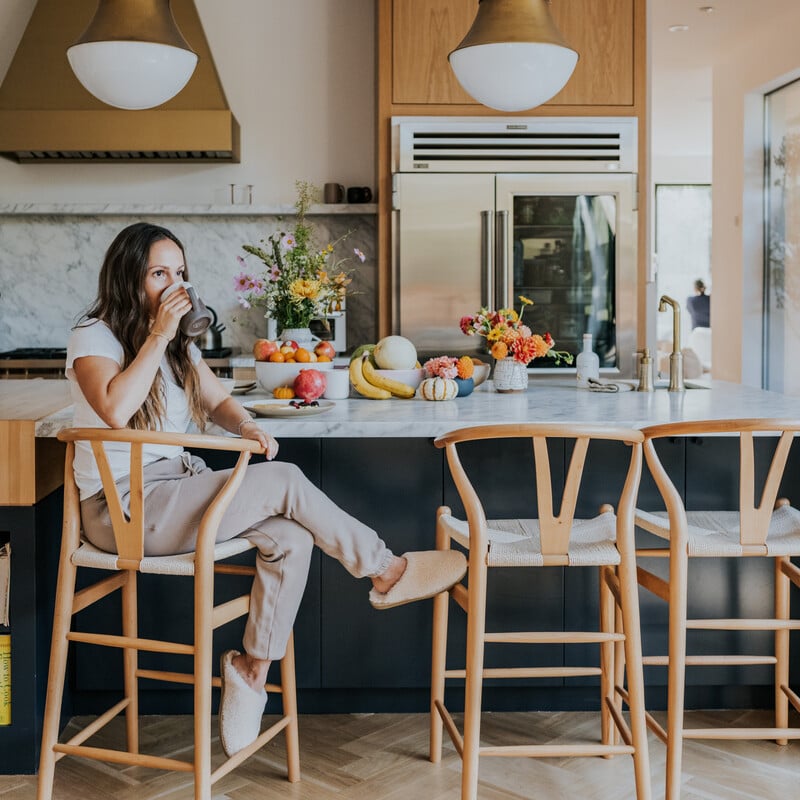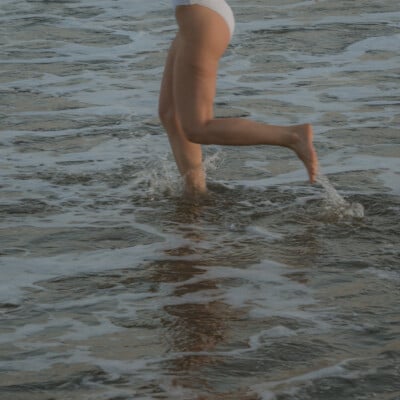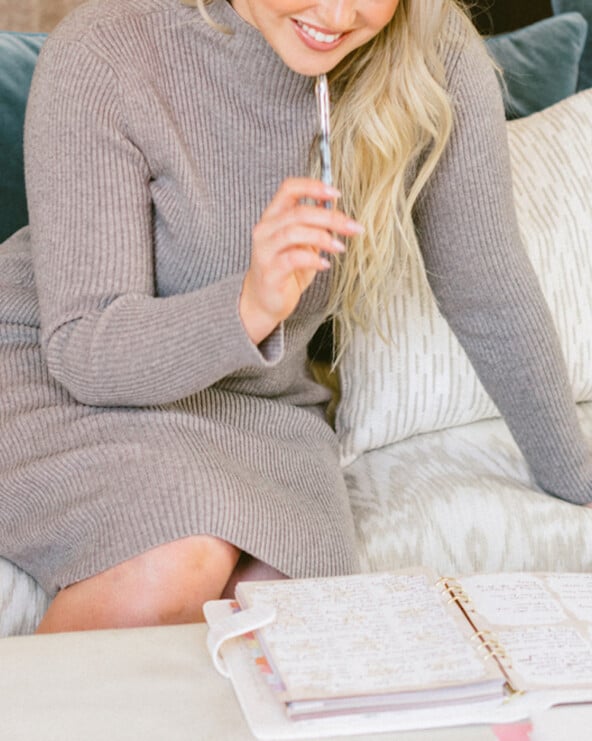I recently asked a good friend of mine, who also happens to be fresh off a reality TV show and up several thousand Instagram followers, why he never posts anything on social media. “I have too much anxiety about it,” he said, and then recounted how he’d hesitate over a post for hours before eventually pulling the plug on the whole thing. He couldn’t stop thinking about what other people would think.
Featured image from our interview with Ariel Kaye by Teal Thomsen.

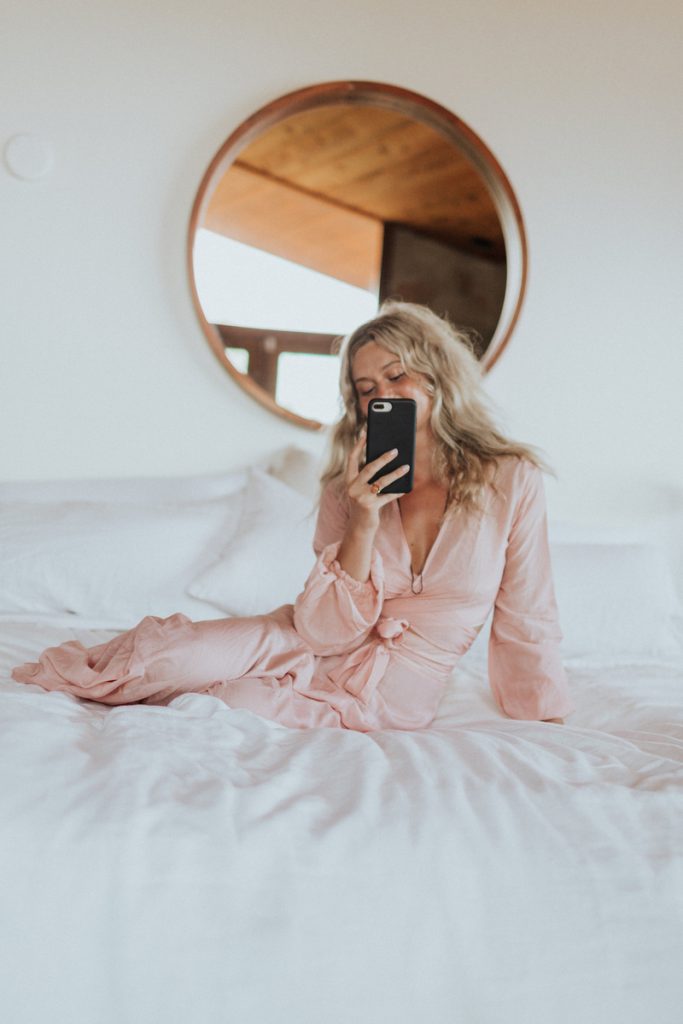
Understanding Social Media Anxiety—An Expert’s Take
I’ve never reached that level of anxiety, but I can certainly commiserate. I’ve agonized over captions, leading images, and whether I was being too showy—or even too humble. I stick with it, inspired by Diane von Furstenberg’s philosophy that Instagram should be a personal diary to track your memories. But the fact is, people are reading my personal diary and approving every entry with a double tap. I can’t help but care about what they think.
To better understand the anxiety most seem to feel around posting to social media (and particularly Instagram), I tapped New York-based psychotherapist Kathryn Lee.
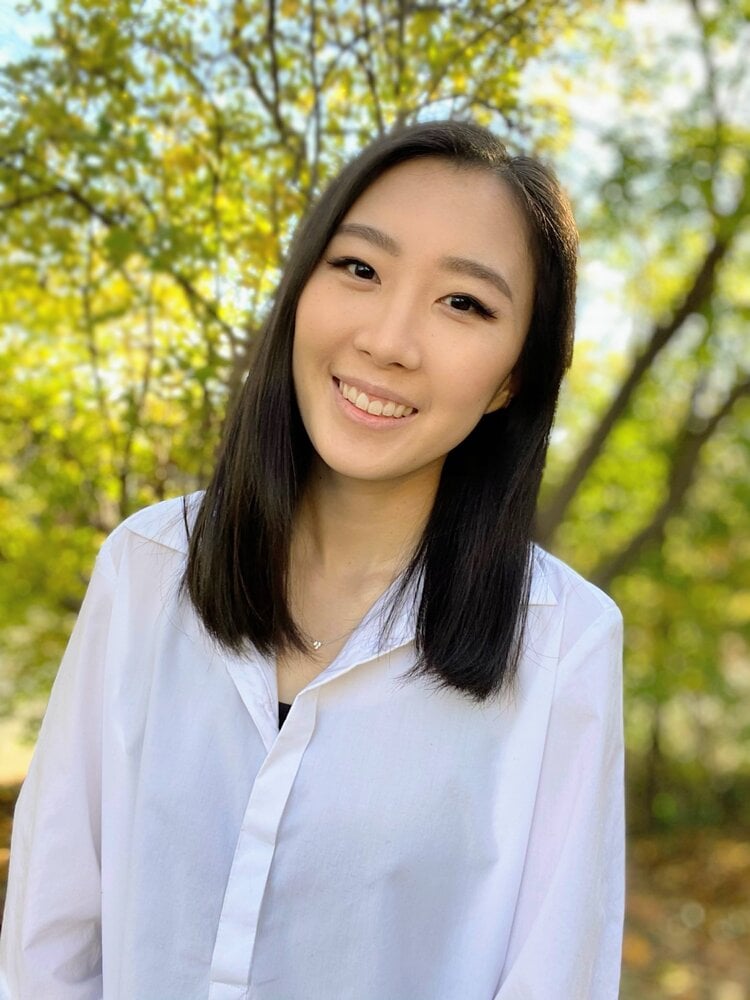
Kathryn Lee is a New York City-based mental health counselor whose work aims to support all people by creating an empathetic, compassionate, and nonjudgmental environment. Her client-centered approach aims to tailor the therapeutic process to each individual, working collaboratively with clients to ensure their perspectives are supported and all their needs are met.

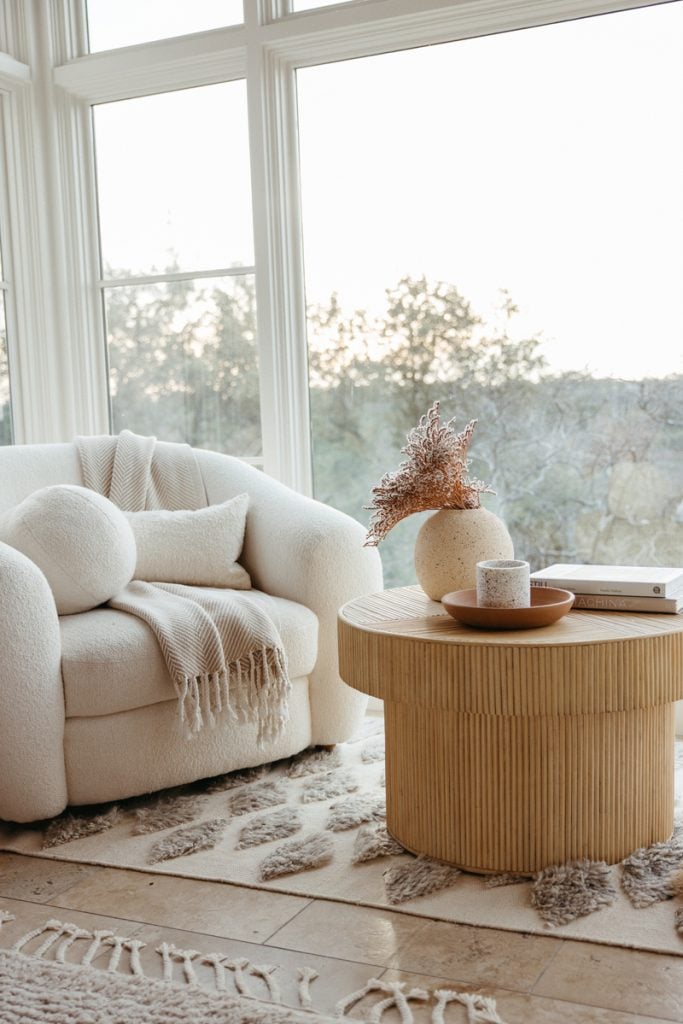
Does social anxiety equate to anxiety about posting on social media?
Social anxiety is an intense fear that an individual is being judged by others. There are various ways in which social anxiety can manifest, including a rapid heart rate, nausea, GI issues, avoiding places, and anxiety in anticipation of an event.
Experiencing anxiety about posting on social media may be symptomatic of social anxiety, but it does not necessarily mean that you have social anxiety and vice versa. If you have anxiety about posting on social media and feel that you may have social anxiety, consider other situations and environments where you also experienced anxious symptoms.
Even if your anxiety about posting on social media is not symptomatic of social anxiety, anxiety about posting on social media may point to other issues such as low self-esteem issues, low confidence, people-pleasing, perfectionism, and/or needing external validation.
What generally causes anxiety when it comes to posting on something like Instagram?
Humans are social creatures, and we crave to be in community—likes and comments can be indicators that we are accepted, wanted, and seen. These are not inherently unhealthy things to want. However, in a society that has become so consumed by physical appearances and living a certain lifestyle, posting can either become a source of validation or a source of dissatisfaction, especially in the past few years when many of our interactions were online and remote.

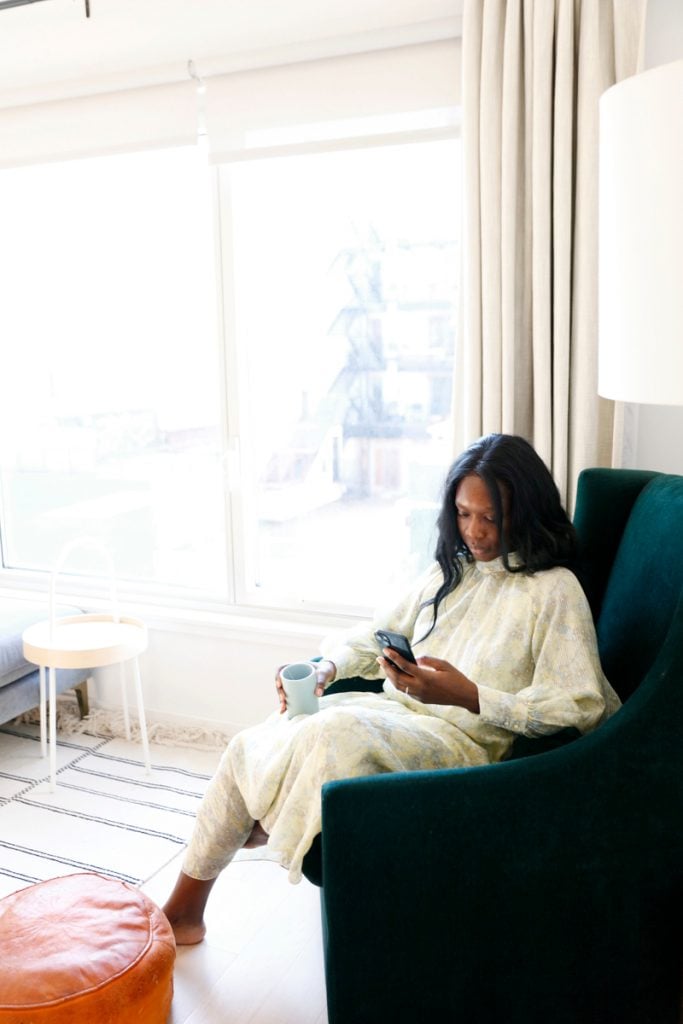
What are some ways to help you move past that anxiety when posting?
- Get curious about why you are posting. Ask yourself if you’re posting for validation, likes, attention, or if you genuinely want to share this picture, raise awareness, or celebrate something that occurred in your life.
- Post often. The more we expose ourselves to situations that feel scary the less they become so.
- When you post, try not to monitor the likes and comments. Even if you feel that you are getting a positive response, try not to get caught up in the likes. Doing so will only enforce anxious thoughts.
- Be mindful of who you are giving access to your life. Not everyone can or should have access to you. If possible, it can be helpful to do a “detox” to unfollow accounts that fuel unhealthy thought patterns and to remove people that you might not want to share things with.

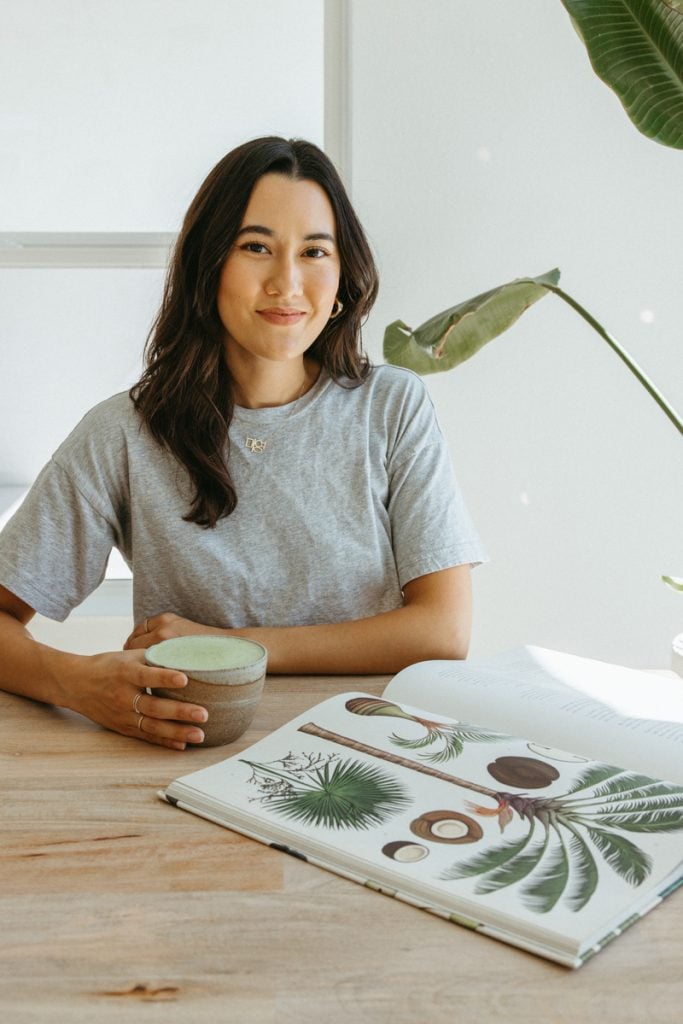
When should you take a break from Instagram once and for all?
If you’re beginning to notice that Instagram is a consistent trigger, that it’s constantly fueling anxious thoughts, stress, self-esteem issues and is impacting your daily functioning, it might be time to take a break.
Some signs it might be time to step away:
- if you are developing an unhealthy relationship with food or exercise
- if you are checking your phone more frequently and it is pulling you from your work and relationships
- if you are struggling to sleep due to anxious thoughts
Remember that your mental health is your responsibility. What better way to take care of yourself than to separate yourself from something that is unhealthy for you?

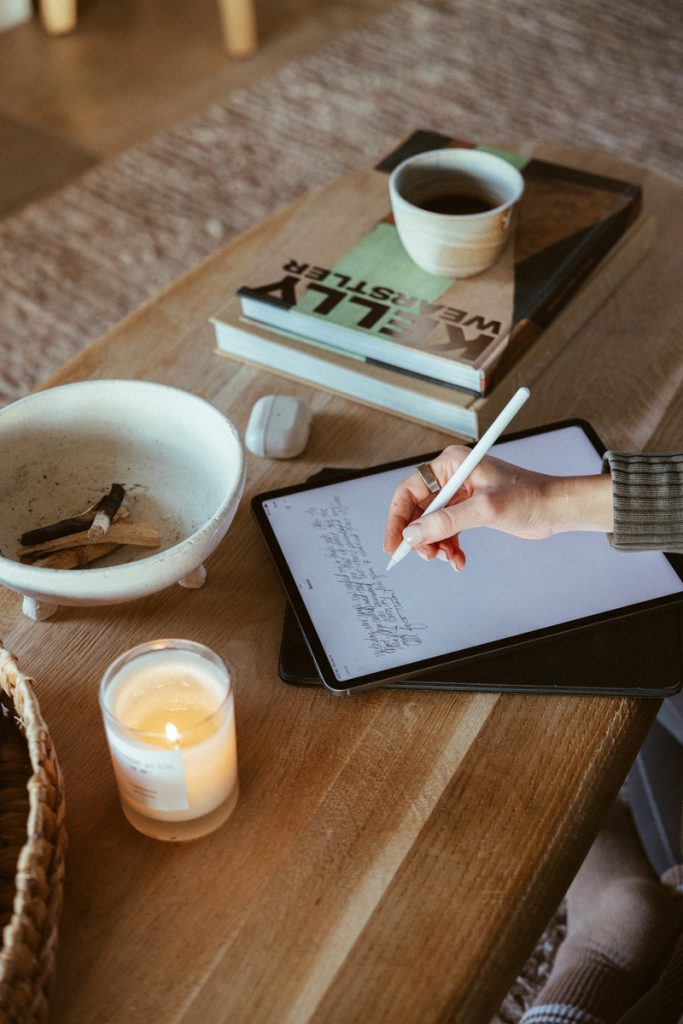
If you can’t take a break from social media (for example, you need it for work), are there other ways to avoid that anxiety?
While you might not necessarily be able to avoid the anxiety, you can learn to manage it and have a healthier relationship with social media.
- Remind yourself that you are more than your job. You have so much to offer beyond your social media skills! It can be helpful to ground yourself in what makes you skilled in posting on Instagram especially if it’s for work, like creativity, design, or production.
- Have boundaries with social media. Treat it as if you would with any other job. Create and maintain a schedule in which you will engage in social media and times in which you will not. It can be helpful to log out of the app or not keep the app on the main page of your phone. You might consider creating a folder for work and putting all applications related to work, including social media there. Lastly, if possible, turn off notifications!
- Stay connected to people, places, and things that help you feel grounded and connected. The more that you maintain and strengthen these connections, the less social media will impact you. If it does impact you (because we all have those days), you will know where to go and who to turn to.

